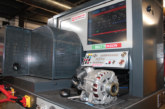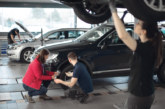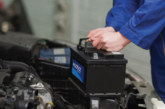
Claes-Peter Lindner, Field Marketing Advisor Nordic, UK and Ireland at ExxonMobil, discusses how and why the company is staying one step ahead in an age of rapid technological change.
The automotive industry today is more technology driven than ever. Cars are becoming smarter at an unprecedented rate, equipped with more sensors, processing power and even the ability to drive autonomously. As change continues so fast, one of the big factors affecting our industry will be electrification and the impact of new vehicle design on the traditional internal combustion engine. How can we ensure we keep pace with this rapid innovation to thrive in the years to come?
Estimating the impact of electrification
ExxonMobil’s 2018 Energy Outlook report estimates that electric vehicles (EVs) will account for 40% of global light-duty vehicles sales in 2040, compared to around just 3% in 2016.
However, there are other huge shifts underway beyond electrification, from ride sharing to autonomous driving. To win in this new reality, we need to understand how drivers’ relationships with their vehicles will evolve.
First of all, a car’s future role will be about far more than just getting from A to B. As on-board technology multiplies, vehicles will come to serve many purposes, from a working space to a learning hub. This will inevitably lead to a stronger connection between driver and vehicle.
Meanwhile, customers will be able to choose from a growing variety of shared mobility services, such as app-based e- hailing (e.g. Uber), and peer-to-peer car sharing. This could open up opportunities for tailored car sharing offers as well as partnerships with local fleets, resulting in changes to the car maintenance landscape far beyond our current recognition.
These developments also illustrate that the future game changers will increasingly include non-traditional players, further disrupting market dynamics and creating the need for new types of service, solutions and experiences.

Workshopping the future
Although the vehicles of the future may have fewer traditional maintenance requirements, they will be far more complex – with multiple on-board computers and millions of lines of computer code.
The most progressive businesses have already begun making the shift to all of this new technology by investing in retraining, safety solutions, and recruitment.
Factor customers will need to quickly become ‘hybrids’ themselves: both petrol heads and IT support, able to change tyres and operate complex diagnostic equipment. At the same time, business models will have to adapt – away from a focus on parts and the internal combustion engine (ICE), towards high-technology services and a number of powertrain types, ICE included.
Future-proofing our businesses
This all makes for a highly unpredictable environment, however some constants remain. Whatever vehicles are on the road will still need reliable servicing, parts and high performance fluids. Critically, customers will continue to look for workshops they can trust.
In a crowded marketplace, however, it can be difficult to stand out. This led ExxonMobil to pioneer a concept designed to help independent workshops differentiate their offer and grow their oil change business. The Mobil 1 Workshop Programme has now amassed 3,000 member sites across 29 countries in Europe. All of these workshops are benefitting from access to Mobil 1 oils and branding, as well as valuable technical, sales and marketing support.







